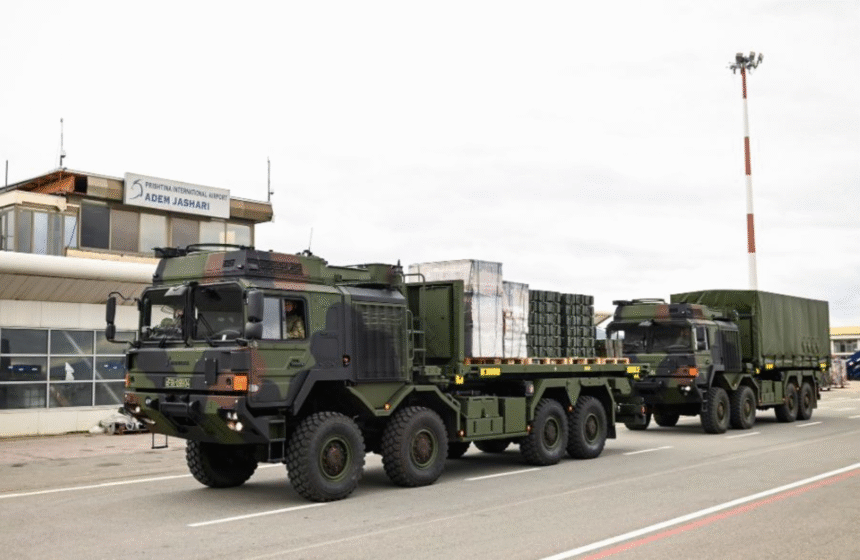The news that thousands of kamikaze drones have arrived in Kosovo immediately provoked a strong reaction from official Belgrade. Vučić’s statement that Ankara is moving toward a revival of the Ottoman Empire was called shameful by President Vjosa Osmani, who in turn told her Serbian counterpart to cooperate with NATO member states rather than continue deepening military cooperation with Russia, China, and Iran.
Meanwhile, security experts consider this development a step toward strengthening the country’s defense and stability.
The arrival in our country of containers carrying thousands of advanced kamikaze drones, “Skydagger,” produced in Turkey, was assessed as a move by the Kosovo Security Force toward building a “modern and contemporary force.” It has been reported that soldiers of the Security Force have already been trained to use these drones.
For security experts, the arrival of the drones is seen as an increase in the country’s security.
“Kosovo urgently needs to continue strengthening its security forces not only with an army, but also in other sectors — especially in the areas of air defense and ground defense, in policing, and in hybrid warfare. Also in cybersecurity. The partnership with the EU and NATO should be reinforced,” said Gurakuq Kuqi, a security expert.
However, the news that thousands of kamikaze drones have landed in Kosovo immediately triggered a sharp reaction from Belgrade, placing Ankara in a very delicate position diplomatically.
Vučić’s harsh tones amounted to accusations that Turkey is violating international law and destabilizing the Western Balkans, emphasizing that official Ankara is moving toward a revival of the Ottoman Empire.
Ironically, Vučić’s own government continues to modernize its military arsenal through close cooperation with Russia and China, despite objections from the European Union and NATO.
President Vjosa Osmani called Vučić’s statement shameful and described Turkey as a committed NATO ally. She underlined that Vučić should work with NATO member states rather than deepen military cooperation with Russia, China, and Iran.
So far there has been no official response from high levels in Ankara to Vučić’s accusations, RTK reports.
This sale of drones does not represent a deviation from Turkey’s policy of stability; rather, it reflects the geopolitical reality: Turkey is a NATO member, while Kosovo is a partner seeking Euro-Atlantic integration — a path Ankara officially supports.
Separately, acting Prime Minister Albin Kurti emphasized that the government signed a contract to purchase the drones last December with the Turkish company Baykar, and their arrival had been planned to take place in January of next year.
With this purchase, Kosovo is continuing to raise and increase the striking power of our army with the goal of building a force capable and coherent with new technological developments and contemporary combat tactics, Acting Prime Minister Albin Kurti highlighted. These kamikaze drones are combat drones equipped with explosive charges intended to strike both moving and static enemy targets.






